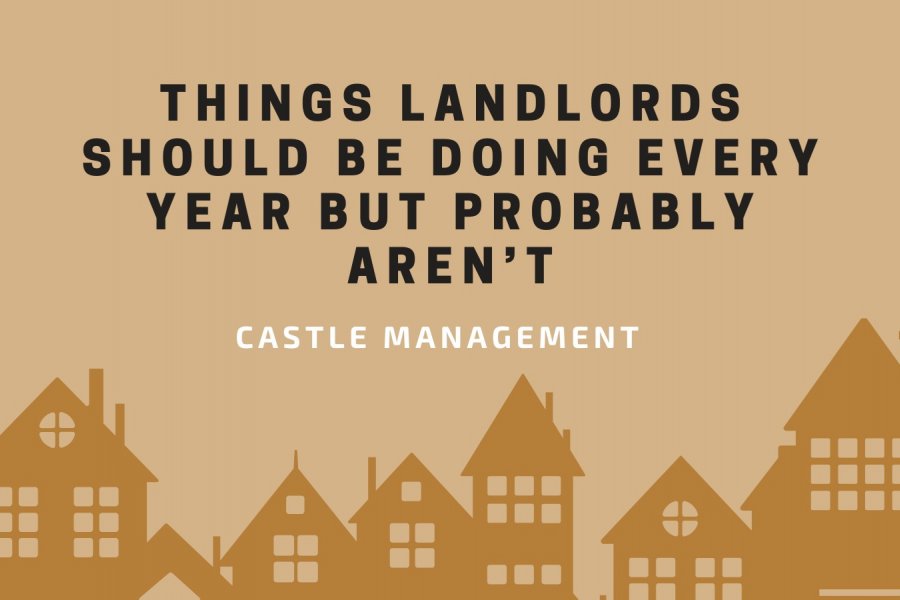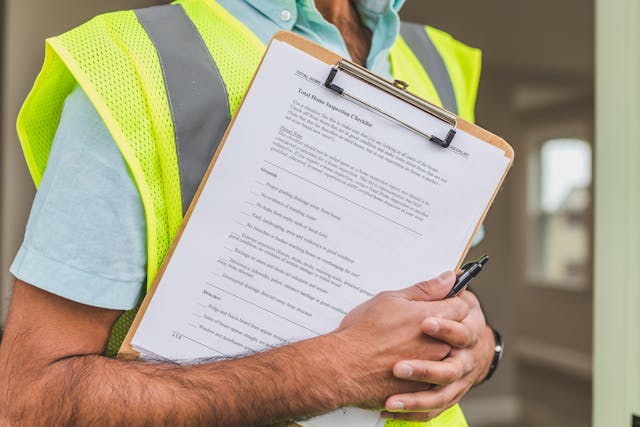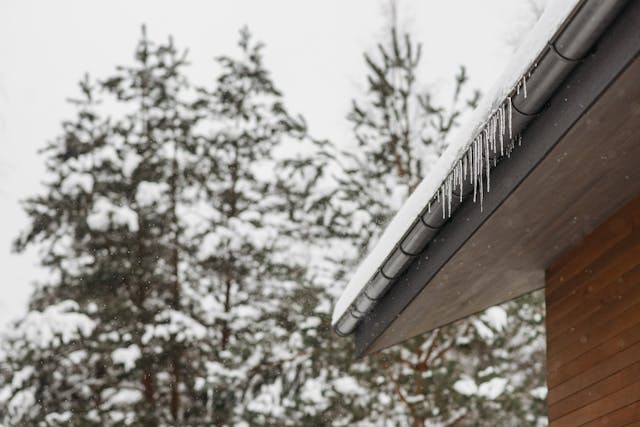
- Proactive Management Prevents Problems: Staying ahead on inspections, maintenance, and communication helps avoid costly issues down the line.
- Annual Reviews Boost Performance: Regularly assessing rent prices, insurance, and finances ensures your property stays competitive and profitable.
- Tenant Feedback Strengthens Retention: Sending satisfaction surveys encourages long-term leases and helps improve tenant relationships.
Whether you’re a first-time landlord or an experienced investor, you probably know by now that managing a rental property is no walk in the park.
It involves a myriad of responsibilities, from coordinating regular maintenance and dealing with emergency repairs to addressing tenants' requests promptly and ensuring compliance with local regulations. Moreover, there’s plenty of planning and paperwork involved.
A successful rental business only thrives when landlords are proactive. Too often, important tasks like routine inspections, preventative maintenance, tenant communication, or financial reviews get overlooked simply because they aren’t urgent in the moment.
But ignoring these responsibilities can lead to costly issues down the line. Landlords who stay ahead of problems rather than reacting to them are the ones who see long-term success.
Adopting a forward-thinking mindset is essential for keeping your properties profitable, your tenants happy, and your business running smoothly. In this article, the team at Castle Management will help you. Keep reading to discover the key essential tasks you should be doing every year, but probably aren’t!
Learn How We Can Help You Maximize Your Home’s Potential!
1. Routine Property Inspections
Most landlords conduct a thorough inspection before tenants move in and after they move out of the property. This helps assess the condition of the property and make any necessary deductions. However, this is not enough. You should inspect your rental property several times throughout the year, ideally once every quarter or every six months.

Regular inspections are key for identifying and addressing maintenance issues before they escalate. Moreover, inspections allow you to ensure tenants are complying with the lease terms, such as keeping the property in good condition, not subletting the unit, and not having pets in the unit.
2. Pricing Assessment
Reviewing your rental pricing strategy is essential for staying competitive and maximizing your income. The rental market constantly shifts due to changes in demand, local development, inflation, and economic trends. If your rent is too low, you may miss out on significant earnings. If it’s too high, you risk longer vacancies and tenant turnover.
A yearly review allows you to compare your rental rates against similar properties, account for rising expenses like taxes or maintenance, and ensure your pricing still aligns with the value you’re offering.
Why Partner with Castle Management?
3. Seasonal Maintenance
Seasonal maintenance helps protect your property from weather-related damage. Each season brings unique challenges. For instance, the cold temperatures in winter can cause frozen pipes, while spring or fall may bring storms or clogged gutters.
Taking a proactive approach to maintenance can prevent costly repairs, keep tenants comfortable, and maintain your property's long-term value.
Here are the basic seasonal maintenance tasks you should complete every year:
- Spring: Inspecting the roof for damage caused by the cold temperature and snow, cleaning gutters and downspouts, servicing HVAC systems, and checking for pests.
- Summer: Testing smoke and carbon monoxide detectors, inspecting plumbing for leaks, cleaning dryer vents, ensuring HVAC systems are working correctly, and checking exterior paint or siding for wear.
- Fall: Cleaning the gutters, inspecting the furnace and replacing filters, and trimming overgrown trees or bushes.
- Winter: Inspecting for ice dams or frozen pipes, ensuring walkways are clear of snow and ice, weatherproofing windows and doors, testing sump pumps, and checking the insulation in attics or crawl spaces.

4. Annual Safety Checks
Part of your responsibilities as a landlord include maintaining the property in safe and sanitary conditions. To ensure compliance with local codes, you should conduct at least one safety inspection every year.
Make sure to inspect the smoke and carbon monoxide detectors, check locks and window latches, ensure stairways and railings are secure, check for pests, and examine electrical systems for hazards. Additionally, you should test fire extinguishers, look for trip hazards, and verify that exits are clear.
Document inspections and address issues promptly to keep the property compliant with safety standards.
Learn More About Castle Management!
5. Property Insurance Review
Landlord’s insurance is a great investment for your rental property. It can offer protection in case of unforeseen events, like property damage or natural disasters. However, insurance premiums can be pricey and tend to increase in price every year. To ensure this doesn’t eat up your earnings, you should review your policy every year.
6. Tenant Satisfaction Surveys
Happy tenants are the key to a successful rental business. After all, the more satisfied your tenants are, the more likely they’ll be to take good care of the unit and renew their leases. There are many things you can do to keep your tenants happy, but most landlords forget a key task: asking tenants for feedback.
You can create a simple satisfaction survey online and send it over to tenants to fill out at the end of the year. By incorporating any provided feedback and suggestions, you can improve the relationship with your landlords and secure long-term tenancies.
.jpg)
7. Financial Assessment
A rental property is a long-term investment. To ensure it’s successful, you should review its profitability at least once a year. Conducting a thorough financial review will allow you to evaluate your income and expenses and identify areas of opportunity. It can also help you prepare for tax season and plan for deductions.
8. Plan for Renovations
Renovations enhance the value and appeal of your property. However, in order to be profitable, they require ample planning and consideration. Ideally, you should take some time every year to study current market trends and plan for new renovations or upgrades.
Even the smallest upgrades, like installing new flooring, painting the walls, or refreshing the kitchen, can make your property much more attractive to tenants.
Discover Our Property Management Services!
Bottom Line
Being a successful landlord requires ample planning and dedication. After all, managing a rental property goes way beyond simply collecting rent.
By building proactive habits, like planning for renovations, conducting regular inspections, and doing satisfaction surveys, into your routine, you can catch small issues before they become major problems, maintain strong tenant relationships, and ensure your rental stays profitable year-round.
Need a hand with your Bay Area rental? Contact Castle Management! Our team of dedicated property managers is prepared to take on any problem that may arise, all while keeping things running smoothly.
